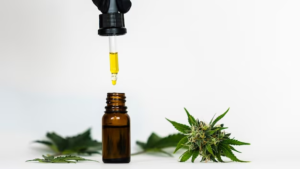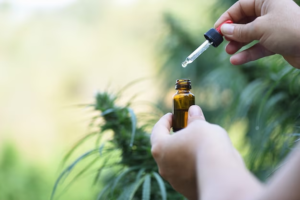
CBD, or cannabidiol, has become a household name, attracting significant attention due to its potential therapeutic benefits and the legal intricacies surrounding its purchase and use. Given the flux of CBD-related information and the varying state-level regulations, many find themselves puzzled: “How old do I really need to be to buy CBD?” This article demystifies the age requirements set by different U.S. states, distinguishing between the federally mandated rules and state-specific nuances.
National Regulations vs. State Stipulations
The legislation encompassing the CBD and hemp sectors, known as The Farm Bill, abstains from dictating any age-related constraints on CBD procurement. It delegates such regulations to state legislatures. Typically, CBD should originate from hemp, not marijuana, given the latter’s illegality. Further, its THC content must not surpass 0.3%.
States with Defined Age Barriers for CBD Purchases
For 18-Year-Olds and Above:
- California: Currently striving for broader CBD legalization, California restricts purchases to those 18+.
- Colorado: The state allows legal purchase of both hemp-derived CBD and hemp flower for those aged 18 or above, given that hemp contains less than 0.3% THC.
- Several Others Include: Delaware, Florida, Georgia, Hawaii, Idaho, Kansas, Kentucky, Louisiana, Massachusetts, Michigan, Minnesota, Mississippi, Montana, Nevada, New Hampshire, New Mexico, New York, North Carolina, North Dakota, Ohio, Oklahoma, Oregon, South Carolina (requires prescription), South Dakota, Vermont, Washington, Wisconsin, and Wyoming.
- Georgia: Responding to the question, “How old do you have to be to buy CBD in Georgia?”, the Peach State restricts purchases to those 18 and above. This puts it in line with many other states, making it easier for potential users to gauge their ability to purchase within the state.
- Wisconsin: Addressing the question of “how old do you have to be to buy CBD in Wisconsin?”, the Badger State also sets the age bar at 18 years. As with Georgia, CBD purchases are permitted for those who have reached the age of majority.
- Colorado: “How old do you have to be to buy CBD in colorado?” is another frequent query. Colorado, renowned for its progressive stance on cannabis, allows the legal purchase of both hemp-derived CBD and hemp flower for those aged 18 and above.
For those 21 and Older:
- Alaska: While no license is required for CBD purchase, the minimum age is 21. The rigorous procedures before CBD product stocking make its accessibility difficult in the state.
- Illinois: If you’re wondering, “How old do you have to be to buy CBD in Illinois?”, the state sets the minimum age for CBD purchases at 21. Illinois provides a broad framework for both hemp and marijuana-derived CBD.
- Indiana: When it comes to “how old do you have to be to buy CBD in Indiana?”, Indiana mandates that individuals be at least 21, but this is specifically for medicinal purposes as the state does not have a full-fledged medical marijuana program.
- Others include: Maine, Rhode Island, Tennessee, and Utah.
Comparative Table on CBD Age Restrictions in Selected States
| State | Age Requirement | Notes |
| Alabama | None (with medical registration) | Unauthorized sales prohibited |
| Arkansas | None | License required for selling or cultivating CBD products |
| Arizona | None | CBD must be hemp-derived |
| California | 18+ | Broader legalization efforts ongoing |
| Colorado | 18+ | Both hemp-derived CBD and hemp flower are legal |
| Alaska | 21+ | Rigorous procedures for CBD product stocking |
| Illinois | 21+ | Allows hemp and marijuana-derived CBD for both recreational and medical |
| Indiana | 21+ (for medicinal purposes) | No medical marijuana program |
| Maine | 21+ | Hemp-derived products only |
| Rhode Island | 21+ | – |
The Distinction Between Marijuana-Based CBD
CBD, or cannabidiol, is a prevalent compound found in both hemp and marijuana plants, both of which belong to the Cannabis sativa family. However, there are crucial differences between CBD derived from these two sources, which significantly impact their legality, usage, and benefits.
- THC Content: The most prominent difference lies in the THC (tetrahydrocannabinol) content. Marijuana plants typically contain higher levels of THC, which is the psychoactive compound responsible for the ‘high’ sensation. On the contrary, hemp plants, by legal definition, must contain 0.3% or less THC. This means marijuana-derived CBD products can induce psychoactive effects, while hemp-based CBD products usually do not.
- Legality: In the U.S., hemp-derived CBD products were legalized at the federal level by the 2018 Farm Bill. Conversely, marijuana and its derivatives, including marijuana-based CBD, remain federally illegal, though some states have legalized its medical or recreational use.
- Usage and Benefits: Both hemp and marijuana-derived CBD offer a range of therapeutic benefits, from pain relief to reducing anxiety. However, because marijuana-based CBD contains more THC, it might be preferred in conditions where THC’s therapeutic properties are desired. On the other hand, those seeking only CBD’s benefits without the ‘high’ would lean towards hemp-derived CBD.
- Regulations: Marijuana-derived CBD products are usually subject to stricter regulations and oversight, given the psychoactive properties of THC. This might include limitations on sale, distribution, and possession.
Understanding the source of CBD is crucial for users, both for legal considerations and to ensure they’re receiving the desired therapeutic benefits.

Recommended CBD Options for Novices
Various modalities exist to sample cannabis, with prevalent ones being CBD tinctures, smoking, and edibles.
- Tinctures: Sublingual administration, or consumption beneath the tongue, offers rapid effects as cannabinoids are absorbed directly.
- Smoking: Despite being the most popularized modality, it’s less advised due to potential pulmonary harm.
- Edibles: Products like CBD gummies are potent. Dosage must be judicious to prevent overconsumption.
Conclusion
Navigating the legal maze of CBD age requirements necessitates an understanding of both federal and state directives. While the federal guidelines provide a broad overview, the states further fine-tune the age criteria based on local considerations and cultural norms. It’s imperative for consumers to remain informed, ensuring they stay compliant with the current regulations in their respective states. As the landscape of CBD continues to evolve, staying updated with the latest information will not only ensure legality but also promote safe and informed choices regarding CBD use.
FAQ
1. What is the primary difference between hemp-derived CBD and marijuana-derived CBD?
Hemp-derived CBD comes from industrial hemp plants, which contain 0.3% THC or less. Marijuana-derived CBD, on the other hand, comes from marijuana plants that have higher concentrations of THC, the compound responsible for the psychoactive ‘high’ effect.
2. Is marijuana-derived CBD legal everywhere in the U.S.?
No, marijuana-derived CBD remains illegal at the federal level, although some states have legalized its medical or recreational use. It’s essential to understand your state’s specific laws regarding marijuana-derived CBD.
3. Can I experience a ‘high’ from hemp-based CBD products?
Hemp-derived CBD products contain 0.3% THC or less, making it highly unlikely to produce a ‘high’ sensation. Most users report feeling relaxed or calm after taking CBD, but not intoxicated.
4. Are there any side effects associated with CBD use?
Like any supplement, CBD might have side effects for some individuals, including dry mouth, low blood pressure, light-headedness, and drowsiness. Always consult with a healthcare provider before starting any new supplement or treatment.
5. Can I travel across state lines with CBD products?
While hemp-derived CBD is legal at the federal level, traveling with it can be tricky, especially if you’re going to a state where marijuana-derived CBD is not legal. It’s essential to understand both state and federal regulations, and when in doubt, consult legal advice.





